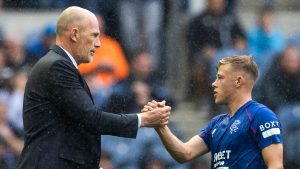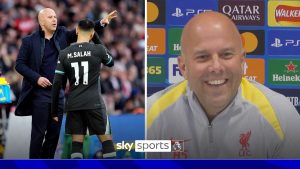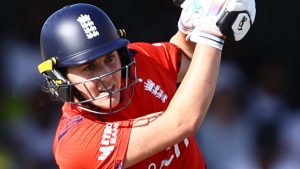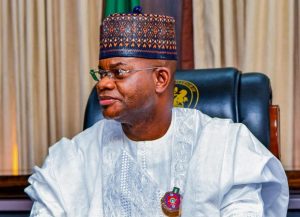Reformed Sinckler inspiring, changing perceptions at RWC

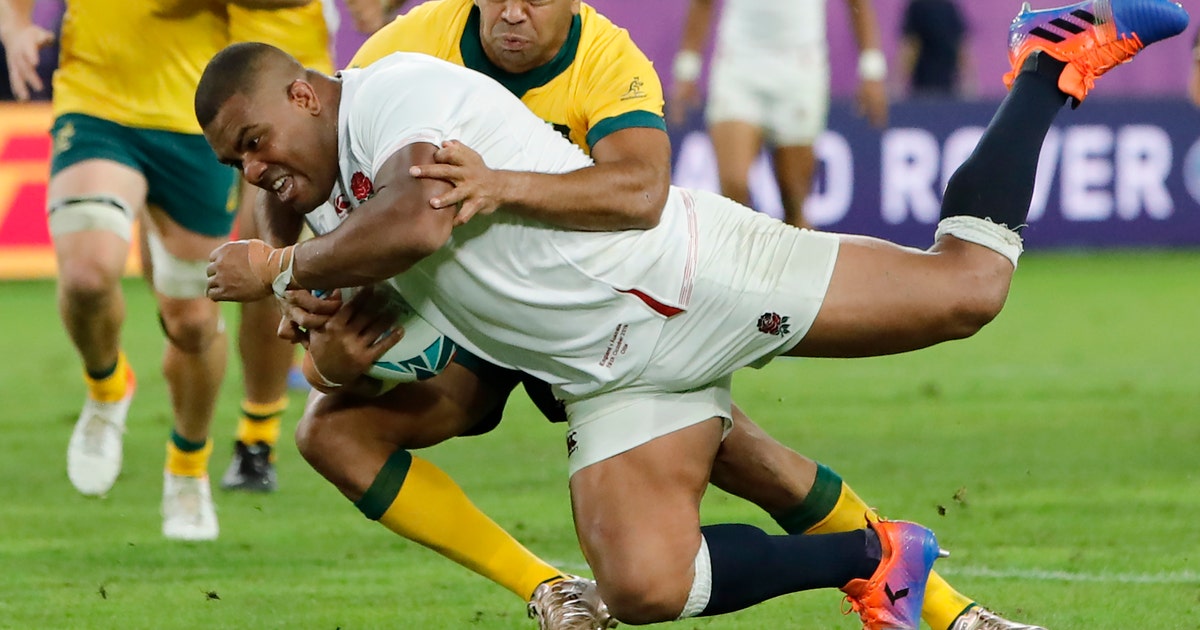
TOKYO (AP) — Raised on an inner-city public housing project and educated at a state school, Kyle Sinckler hardly fits into the widely held stereotype of English rugby being a sport for the well-heeled.
His first experience of the oval-ball game came as an angry 8-year-old kid, when he turned up at a local club wearing a Manchester United soccer jersey and seeking an outlet to unleash some pent-up frustrations within the laws of a game.
As many of his peers joined gangs, he found an escape in sport — ultimately, rugby.
“A lot of people, when I was growing up, said I couldn’t do a lot of things,” Sinckler said, “that I wouldn’t amount to anything.”
Fast forward nearly 20 years, Sinckler — a rampaging, 113-kilogram (249-pound) prop forward — has assumed cult status as something of a working-class hero of English rugby and is preparing to line up in a World Cup semifinal against the storied New Zealand All Blacks on Saturday.
He says his aim is to “try and inspire the next generation,” and his performances in Japan might be doing that.
One of the images of this World Cup, at least from an English point of view, was Sinckler scurrying up to the line with a grin on his face to score his first international try in the 40-16 win over Australia in the quarterfinals last weekend.
He had just run onto a flat pass from England flyhalf Owen Farrell and broken through the Australian defensive line at speed. Not bad for a guy who England coach Eddie Jones described as a “chubby prop” when he first set eyes on Sinckler during an English club match in 2016.
He “could do things that other props couldn’t do,” Jones recalled. “I thought I’d give him a go and we took him (on tour) to Australia in 2016 and he had bit of an apprenticeship, couldn’t get a game, trained hard and discovered what he needed to work on.”
Now he’s a starter for England ahead of veteran prop Dan Cole, having been a member of the British and Irish Lions squad that toured New Zealand in 2017 and came away with a 1-1 draw in the test series.
What’s turned Sinckler from being a raw talent to a reliable fixture in the England team is his ability to curb the volatile temper he has had since a youngster.
He believes he got that from being born into a single-parent family and being brought up by his mother, who worked — and still does work — 12-hour shifts in a police call center. He lacked a father figure in his life and “put my trust in certain people who betrayed me.”
It took time, Sinckler says, for him to learn “how to be an actual man.”
Warren Gatland, the Wales coach who was also in charge of the Lions in New Zealand, selected Sinckler for the 2017 tour and saw at first hand the prop’s combustibility. Ahead of a Wales-England fixture in the Six Nations in February, Gatland described Sinckler as an “emotional time bomb” with “a few demons.” And, true enough, Sinckler conceded two penalties before getting involved in a confrontation with Wales captain Alun Wyn Jones.
Point proved.
So Sinckler has spent time with Saviour World, a life-coaching program for men, and has learned to contain his anger. It was noticeable that when Australia hooker Tolu Latu patted Sinckler on the head after the Wallabies won an early scrum in the quarterfinal, Sinckler didn’t take the bait.
“I want to set a good example and show what being a man is,” he said. “Being a man isn’t losing your emotions, and showing the opposition how you really feel. It’s about being calm, being disciplined, putting the team first.”
Sinckler’s mother, Donna, was in the crowd at Oita Stadium last Saturday. Imagine the pride she felt at seeing her son — once a hothead — keep his cool under such intensity and score a crucial try. Not only that, he forced a huge turnover on England’s line in the second half as Australia rallied.
After all, it was Donna who sent her son to that rugby club in Battersea, London, all those years ago having realized his physicality was getting him into trouble on a soccer field.
So, onward for Sinckler and a semifinal match against New Zealand in Yokohama on Saturday. It’s another milestone in this unlikeliest of careers and another chance for youngsters back in England to see “what is possible” — in the words of Sinckler — if they find an outlet in sport, even one atypical to their background.
Like what rugby was to Sinckler all those years ago.


